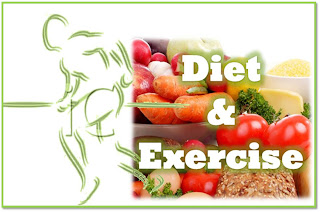Protein is a necessary part of every persons' diet. It is essential for the survival of every organism, and participates in every process within cells. Humans and animals, and even the microbes that is made up of about 20 (20-22 depending on who you ask) amino acids, of which 9 (8-10 dependenter our bodies, are largely made up of protein. Muscles, skin, and organs are all made from protein, and it is essential for building and repairing body tissue. Protein acts as a catalyst in many biochemical reactions, and is vital to metabolism. Protein is also important in cell signaling, immune responses, cell adhesion, and the cell cycle. The body will use protein as a source of emergency energy, if carbohydrates or fats cannot meet its immediate needs.
 As protein is a very complex and in depth subject, it can be difficult to explain the functions of proteins in simple terms, or to explain exactly how they function in everyday life. Protein ing on who you ask) are considered essential amino acids. The body cannot synthesize these, so they must be obtained from food. The nine amino acids generally regarded as essential for humans are: isoleucine, leucine, lysine, threonine, tryptophan, methionine, histidine, valine and phenylalanine. Some experts don't consider histidine to be an essential amino acid. Also, babies require the additional amino acid arginine.
As protein is a very complex and in depth subject, it can be difficult to explain the functions of proteins in simple terms, or to explain exactly how they function in everyday life. Protein ing on who you ask) are considered essential amino acids. The body cannot synthesize these, so they must be obtained from food. The nine amino acids generally regarded as essential for humans are: isoleucine, leucine, lysine, threonine, tryptophan, methionine, histidine, valine and phenylalanine. Some experts don't consider histidine to be an essential amino acid. Also, babies require the additional amino acid arginine. After consumption of proteins, enzymes in the digestive system break down protein into separate amino acids which then go into the bloodstream to be transported to the cells. The cells then incorporate the amino acids and begin building proteins from them. Since we have no system for long-term storage of protein, it should be consumed every day. The FDA states that protein should account for 10% of total calories in the diet, which would be about 50 grams in a daily diet consisting of 2,000 calories. As an example, a four ounce hamburger patty would supply about half the daily needs.
After consumption of proteins, enzymes in the digestive system break down protein into separate amino acids which then go into the bloodstream to be transported to the cells. The cells then incorporate the amino acids and begin building proteins from them. Since we have no system for long-term storage of protein, it should be consumed every day. The FDA states that protein should account for 10% of total calories in the diet, which would be about 50 grams in a daily diet consisting of 2,000 calories. As an example, a four ounce hamburger patty would supply about half the daily needs.COMPLETE PROTEINS- These are sources of protein that contain all nine essential amino acids. Complete proteins come from animal sources such as meats, eggs, and dairy products. Protein is evaluated according to its effectiveness in building new body tissue. The protein found in eggs is the most perfect form of dietary protein known to man. In fact, the quality of protein found in eggs sets the standard by which all other sources of protein are rated. Eggs are given a rating of 100 (or 93.7 depending on who you ask) while beef, for example, has a rating of only about 70.
INCOMPLETE PROTEINS-
 These are protein sources that do not contain all nine essential amino acids. Most plant foods are sources of incomplete protein. A person on a plant based diet, however, can still get all essential amino acids. The key is to combine vegetables and grains. The essential amino acids absent in vegetables, are present in grains, and the ones absent in grains, are present in vegetables.
These are protein sources that do not contain all nine essential amino acids. Most plant foods are sources of incomplete protein. A person on a plant based diet, however, can still get all essential amino acids. The key is to combine vegetables and grains. The essential amino acids absent in vegetables, are present in grains, and the ones absent in grains, are present in vegetables. Any grain plus any vegetable equals a complete protein. And you don't have to eat them at the same time. Eating some form of grain for breakfast, and consuming vegetables for lunch will give you a complete protein.




 8:54 PM
8:54 PM








 Posted in
Posted in
1 Response to "Guidelines For Protein Consumption"
Soy, spirulina, hemp seed, amaranth, buckwheat, and quinoa are all single sources of complete plant proteins!
Post a Comment